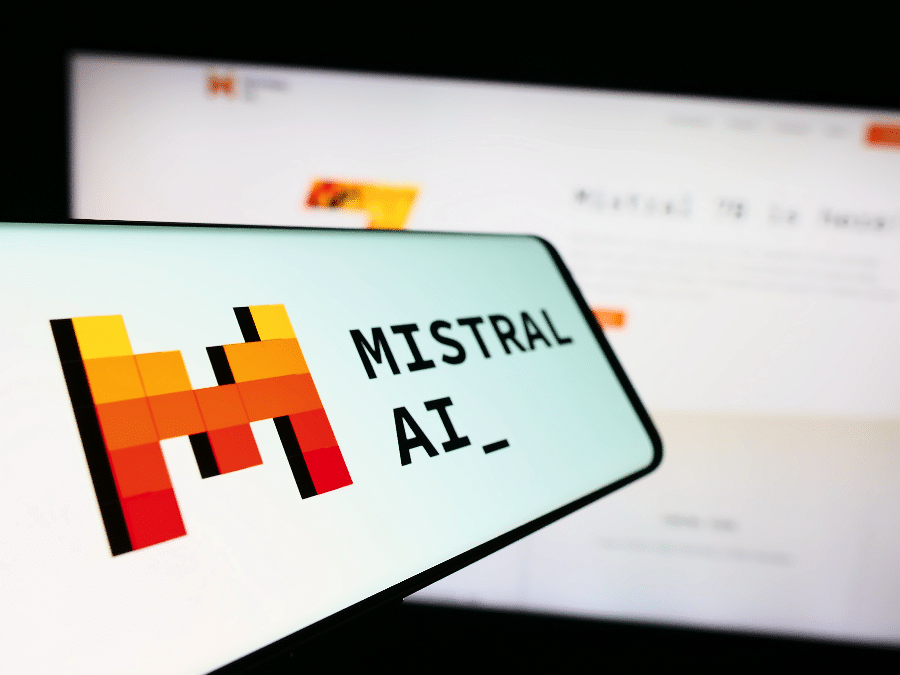French AI start-up Mistral AI has become a big name in European artificial intelligence (AI). On Sunday, it announced its successful €385 million ($414 million) fundraising, making it one of the top AI companies in Europe.
Mistral started in May and had already raised €105 million ($113 million) in June. In the European AI sector, only Germany’s Aleph Alpha compares, having raised nearly €500 million ($538 million) earlier in November.
This latest funding round, spearheaded by the California-based Andreessen Horowitz fund, values Mistral at €2 billion, according to a source who told Reuters. This elevates it to a French tech unicorn status, denoting a valuation exceeding one billion euros.
What Is Mistral AI and What Do They Do?
Mistral AI is revolutionizing the AI industry with its advanced open generative models. As of December 11, 2023, they have launched early access to their first platform services. What’s unique about Mistral AI is their focus on open-source AI, meaning they make their AI tools available for everyone to use and improve upon.
Mistral AI offers a range of AI services:
- Mistral-tiny: A budget-friendly option, good for English text generation, known for its accuracy and cost-effectiveness.
- Mistral-small: Supports multiple languages and is good for coding tasks, known for being a bit more advanced.
- Mistral-medium: The best quality service they offer, great at handling different languages and coding, known for its top performance.
Announcing Mixtral 8x7B https://t.co/E5G6tsxyCs and our early developer platform https://t.co/uGNjoGtmlE. Very proud of the team!
— Arthur Mensch (@arthurmensch) December 11, 2023
These tools are designed to be user-friendly and efficient, making AI accessible to more people.
Series A Investment Boosts Mistral’s Open-Source AI Initiatives
The recent Series A investment in Mistral by the Andreessen Horowitz fund shows how important Mistral is in the world of open-source AI. The fund believes AI should be open to everyone, just like other key computer systems such as Linux, Docker, or Javascript.
Mistral is at the forefront of a burgeoning community of developers focused on open-source AI. In just seven months since its inception, Mistral has released highly efficient and powerful language models, mistral-7b and mixtral. These models are becoming popular because they work well, are flexible, and are improving AI technology quickly.
The Mistral team, with Arthur Mensch, Guillaume Lample, and Timothee Lacroix in charge, used to work at Meta and Deepmind. They’ve done a lot to help develop open-source AI, including working on the Llama model family and the Chinchilla project.
EU’s Pioneering AI Act: Setting New Standards for AI Companies Like Mistral
In a development that’s highly relevant to AI companies such as Mistral AI, the European Union (EU) has recently made a significant advancement with the provisional agreement on the proposed Artificial Intelligence (AI) Act. This critical legislation is set to ensure the safety of AI systems used in the EU, while also upholding people’s rights and reflecting EU values.
The AI Act focuses on several key areas:
- New Rules for AI: The Act introduces guidelines for both general and high-risk AI models. This is important for companies like Mistral AI that are creating advanced AI tech.
- Managing AI in the EU: A new system is being set up to oversee AI in the EU. This could change how AI companies, including Mistral AI, work in the EU.
- Protecting People’s Rights: The Act aims to make sure AI respects people’s rights and stops certain AI practices that might be harmful.
- Helping AI Grow Safely: It asks for clear information about high-risk AI and provides more support to help AI innovation in the EU.
This agreement is a crucial step in managing AI in the EU. It will affect how AI companies build, use, and control their AI technologies. The goal of the Act is to create a safe and forward-thinking AI environment. This fits well with what Mistral AI is doing with open-source AI, but it also means they’ll have to follow these new rules.
